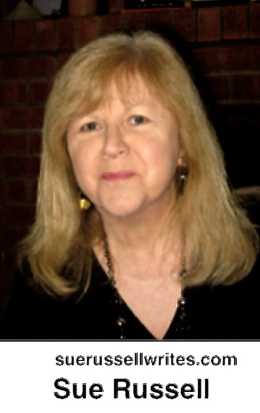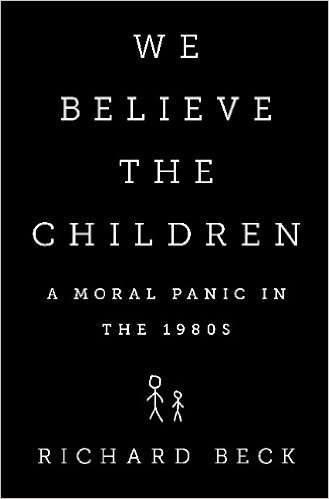Rascals case in brief
In the beginning, in 1989, more than 90 children at the Little Rascals Day Care Center in Edenton, North Carolina, accused a total of 20 adults with 429 instances of sexual abuse over a three-year period. It may have all begun with one parent’s complaint about punishment given her child.
Among the alleged perpetrators: the sheriff and mayor. But prosecutors would charge only Robin Byrum, Darlene Harris, Elizabeth “Betsy” Kelly, Robert “Bob” Kelly, Willard Scott Privott, Shelley Stone and Dawn Wilson – the Edenton 7.
Along with sodomy and beatings, allegations included a baby killed with a handgun, a child being hung upside down from a tree and being set on fire and countless other fantastic incidents involving spaceships, hot air balloons, pirate ships and trained sharks.
By the time prosecutors dropped the last charges in 1997, Little Rascals had become North Carolina’s longest and most costly criminal trial. Prosecutors kept defendants jailed in hopes at least one would turn against their supposed co-conspirators. Remarkably, none did. Another shameful record: Five defendants had to wait longer to face their accusers in court than anyone else in North Carolina history.
Between 1991 and 1997, Ofra Bikel produced three extraordinary episodes on the Little Rascals case for the PBS series “Frontline.” Although “Innocence Lost” did not deter prosecutors, it exposed their tactics and fostered nationwide skepticism and dismay.
With each passing year, the absurdity of the Little Rascals charges has become more obvious. But no admission of error has ever come from prosecutors, police, interviewers or parents. This site is devoted to the issues raised by this case.
On Facebook
Click for earlier Facebook posts archived on this site
Click to go to
Today’s random selection from the Little Rascals Day Care archives….
Click for earlier Facebook posts archived on this site
Click to go to
Today’s random selection from the Little Rascals Day Care archives….
Are mistaken prosecutors silenced by shame?
 Jan. 31, 2015
Jan. 31, 2015
“ ‘You need to try to rectify whatever error you made,’ says Santa Clara County, California, Special Assistant District Attorney David Angel. ‘But it needs to really shift from this kind of highly moralistic, punitive view. Maybe it’s a cause for embarrassment, but it’s not a cause for shame.’
“He believes prosecutors have drawn the short straw in language, noting that defense attorneys who err are called ‘ineffective’ and judges are ‘reversed,’ while prosecutorial error alone is labeled ‘misconduct,’ with all the attendant negative connotations.
“Angel believes that most prosecutors are willing to admit to mistakes but that ‘people are very hesitant to admit to something that’s called “misconduct,” because it makes you feel like you did something morally wrong.’ ”
– From “Why can’t law enforcement admit their mistakes?” by Sue Russell at Pacific Standard (via Salon, Oct. 21, 2012)
The concept becomes trickier, however, the longer prosecutors cling to their fallacious and costly narratives. At some point – oh, let’s say 25 years later – might “mistakes” have toxified into “misconduct”?
What is so sad as a debunker with no bunk?
 June 12, 2014
June 12, 2014
“He thinks the continued treatment of these cases as a modern-day episode of mass hysteria does disservice to children and even puts them in danger.
“ ‘We have, over the last 20 years, discounted the word of children who might testify about sexual abuse,’ he writes. ‘We have become more worried about overreacting to child sexual abuse than we are about underreacting to it.’
“If that were the legacy of the day-care cases, it would be a damning one. But when I spoke to psychologists in the field – those Professor Cheit cites respectfully, as well as those he attacks – they gave a different account of the science at the heart of this history….”
– From “Abuse Cases, and a Legacy of Skepticism” by Emily Bazelon in the New York Times (June 9)
Thank you, Ms. Bazelon. In the category of “fat books in desperate search of a reason to exist,” Cheit’s “The Witch-Hunt Narrative” belongs right up there with William D. Cohan’s contemporaneous “The Price of Silence,” an account of the Duke lacrosse case that sympathizes not with the railroaded (and later exonerated!) defendants but with District Attorney Mike Nifong, who was disbarred and briefly jailed for conspiring to rig the case against them.
At the core of each book is the unsubstantiated contention that something surely must have happened, either at a Durham party house and at countless day cares. Fortunately, Cohan and Cheit can only gratuitously smear the reputations of innocent defendants, not put them in prison – unlike Little Rascals expert witness Mark “where there’s smoke there’s fire” Everson.
At last, book lays bare ‘satanic ritual abuse’ era
 Aug. 10, 2015
Aug. 10, 2015
Since I undertook this blog in 2011, I’ve been waiting for a mass-market book that recalls the “satanic ritual abuse” day-care era with authority, insight and thoroughness.
“We Believe the Children: A Moral Panic in the 1980s” comes pretty darn close to meeting that standard. (I do wish author Richard Beck had addressed the significant post-panic contributions of Richard Noll and Allen Frances.)
I’ll be posting excerpts from the book and later an interview with Beck.
Meanwhile, I’ve been pleased to see the reviews in the news media – so far, all largely appreciative.
“…This book does a devil of a job correcting… all the lies and self-deceptions, so credulously believed in the 1980s….”
– From “Child Abuse Cases Endure as Lessons in Hysteria” by Mark Oppenheimer in The New York Times (Aug. 6)
“ ‘We Believe the Children’ should serve to remind us of the dangers of the ‘we must believe the victim’ mindset in the case of any criminal offense. A faith-based pursuit of justice can lead to a miscarriage of justice.”
– From “What Fueled the Child Sex Abuse Scandal That Never Was?” by Lizzie Crocker at the Daily Beast (Aug. 3)
“ ‘We Believe the Children’ reveals the various combinations of ignorance, venality, arrogance and zealotry that characterized the major players who fueled the moral panic.”
– From “A Very Model Moral Panic” by Carol Tavris in the Wall Street Journal (Aug. 7)
Here also is a radio interview with Beck and – inevitably – a response from witch-hunt denier Ross Cheit.
Holocaust denial shows vulnerability of real memory
Oct. 11, 2013
“Holocaust deniers have managed to receive, in recent years, a respectful hearing on college campuses and elsewhere, despite the existence of mountains of firsthand and corroborated traumatic memories of the Holocaust provided by many thousands of survivors – memories that don’t have to be recovered because they are all too vividly, and all too persistently, remembered.
“Holocaust deniers began to achieve their victory over memory even before efforts were made to establish the new category of ‘recovered memory.’ If recovered memory remains unchallenged as a new form of memory, then one can only guess how much more vulnerable to doubt and manipulation legitimate memory will become.”
– From “The Monster In the Mists” by Walter Reich in the New York Times (May 15, 1994)











0 CommentsComment on Facebook